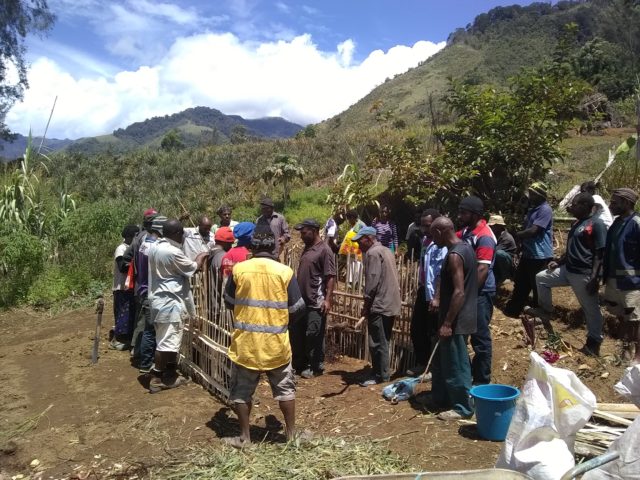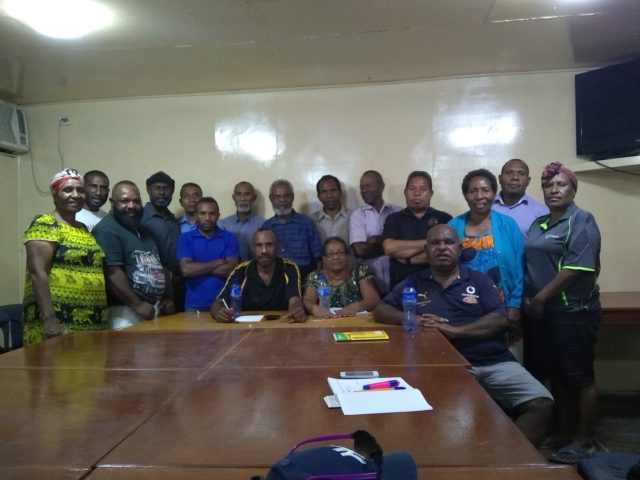The fight against poverty and climate change has been an ongoing battle across the entire South Pacific Region. Scientific studies have shown that best practice organic agriculture is a win-win situation. Research has shown that organic farming systems are more resilient to adverse weather conditions such as increased number of tropical cyclones and drought patterns over the last few years.
Due to the increase of these types of incidents the Australasian Union Welfare Department has been assisting the South Pacific region for several years with hands-on training seminars on the direct benefits of eating healthy food. Explaining the benefits of eating healthy is an important work due to the increasing prevalence of importation of “junk foods.” With this increase comes a change in dietary habits and sugar intakes. Brand advertising has taken over these places, and soft drinks along with white flour and white food products is seen as “good foods” while home grown food as mediocre.
Diabetes and Heart Disease have taken over as the leading causes of death. Almost all of our membership lives in rural locations, and all have land available to them to use for gardens. However, knowledge on how to use their land is not passed down. Many have abused the land to the point they garden by burning new ground every year with the idea that it is fresh ground.
“In God’s plan for Israel every family had a home on the land, with sufficient ground for tilling. Thus, were provided both the means and incentive for a useful, industrious, and self -supporting life.” The Ministry of Healing, p. 183.
Recently I was invited to attend a church dedication. Prior to the dedication we invited all the surrounding neighbours and farmers to attend an agriculture seminar for four days. Training given really focused on soil re-habilitation using simple and readily available treatments. Each person owned the tools needed, each person had a space for a garden. They were impressed with a video shown on how one man was using his same garden bed for over 10 years. Many could not believe such a thing was even possible. But by showing this video presentation the concept entered their minds to start new again. Over time deforestation was occurring, and they had to travel longer distances into virgin territory to grow gardens. This simple concept of using homemade composts along with the manufacturing of their own biofertilisers and using simple ingredients in their gardens makes all the difference in the soil and allows them to garden in the same place.
Many widows attended the seminar. They along with orphans are the needy ones, as there is no other support system available to them but by living from their gardens. When shown about their neglect, their eyes lit up, and smiles emerged as they caught the vision of change.
Ellen White wrote, “Christian farmers can do real missionary work in helping the poor to find homes on the land and in teaching them how to till the soil and make it productive. Teach them how to use the implements of agriculture, how to cultivate various crops, how to plant and care for orchards. Many who till the soil fail to secure adequate returns because of their neglect…Their ill success they charge to the unproductiveness of the land. False witness is often borne in condemning land that, if properly worked, would yield rich returns.” The Ministry of Healing, pp. 191-193.
Once the students realised that they didn’t have to work so hard by creating new gardens, and could stay close to their homes, their outlook changed. I was able to share stories of how over the years I got feedback from previous students and how their fruit crops had increased. Their vegetable gardens yielded so much that their lives improved from their changes. When I showed photos of farmers growing larger fruits and vegetables, they shook their heads in amazement that such things are possible.
Over time in the South Pacific many missionaries of all the various denominations have come and taught people how to grow vegetables. But this information was never passed on and over time forgotten. Many tell me, “Mama ground always gives up her food to us.” However, when I showed them that the food they were eating had diminished in nutritional value and the reasons why their fruit was not sweet, they looked in amazement and wanted to learn even more. This is a common occurrence everywhere, and when I tested this theory not only across the South Pacific Islands, but also in Colombia and Brazil, even across parts of Europe, people were in agreement with the values shown them. There are many lessons to learn about soil health and how it relates to our body’s physical health.
More work and training are needed not only to the people hungry for agricultural training, but more work is needed in our sanitarium gardens, more work is needed in our missionary schools in regards to agricultural knowledge. Agricultural education is a wonderful tool; however, it also means more than just studying books. It is important to have the physical aspects intertwined with the educational aspects, thus fulfilling the mandate of God given in Eden.
John Lausevic, outgoing Welfare Department Director

